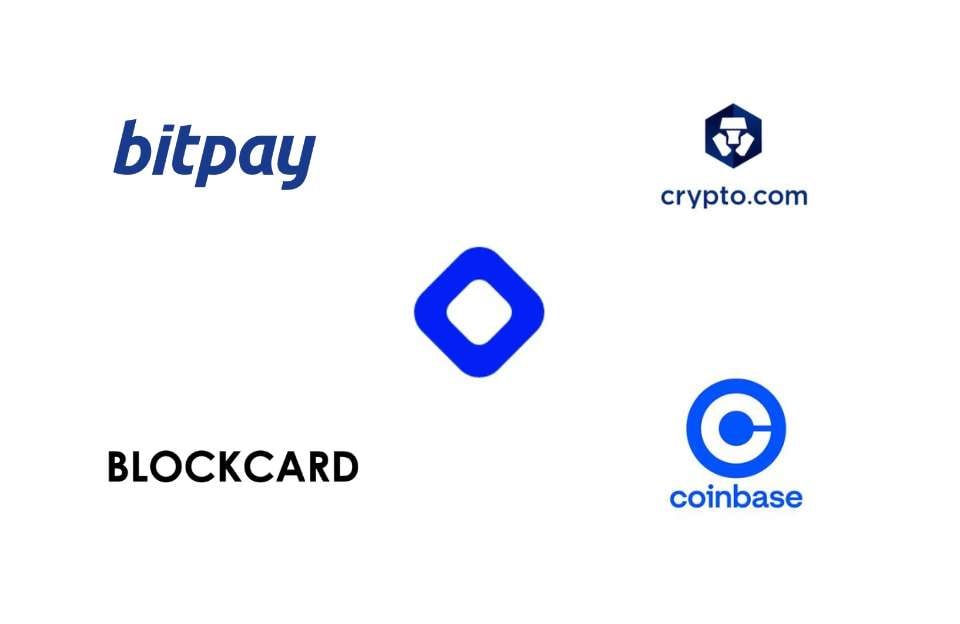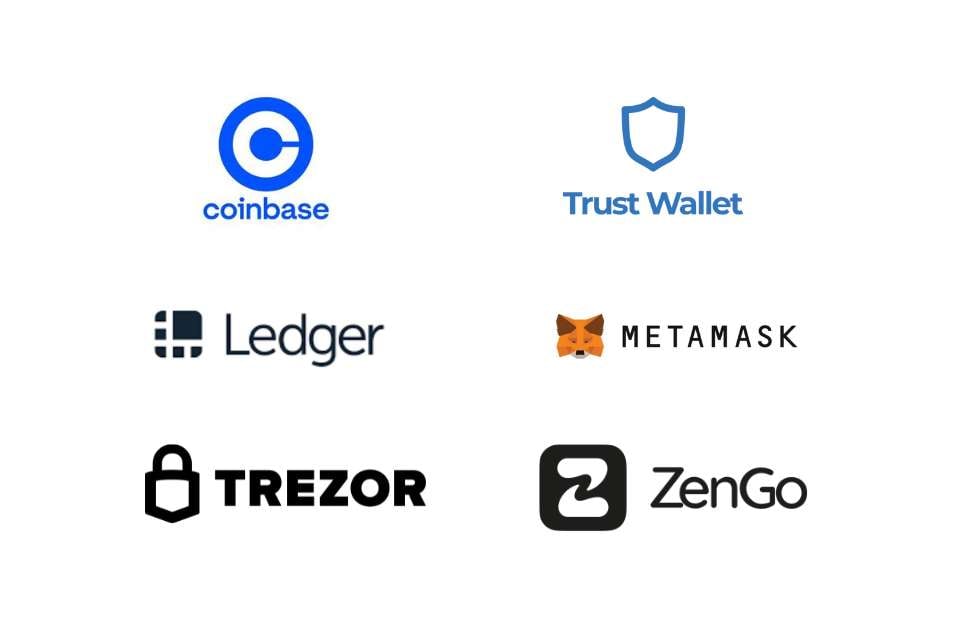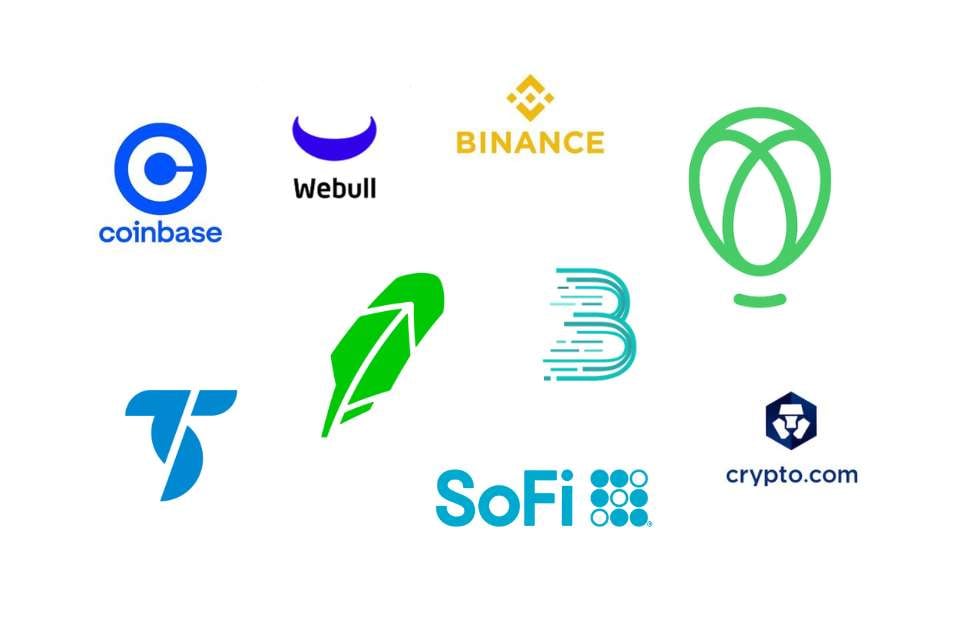USA Crypto Friendly Score
Luis Clark
- Home
- /
- USA & Crypto
Luis Clark
Hello, fellow crypto enthusiasts! If you’re anything like us, you’re constantly on the lookout for the latest updates and trends in the dynamic world of cryptocurrency. And if you’re interested in how the United States is faring in the global crypto market, you might be wondering what’s going on across the pond.
Well, you’re in luck because we’ve got you covered! We’ll delve into the latest regulations, most innovative projects, and groundbreaking developments in the intersection of the USA and crypto.
First off, let’s talk about regulations. The United States is one of the few countries in the world that has taken significant steps toward regulating the crypto industry. This includes providing clear guidelines for companies operating in the space and taking enforcement action against those that do not comply with these regulations.
Moreover, the US government has also been exploring the use of blockchain technology in various sectors, such as healthcare, logistics, and supply chain management. It’s good to see that blockchain technology is gaining more attention and traction beyond just being used for cryptocurrencies. It shows that people are recognizing the potential of this technology for other applications as well.
Overall, the relationship between the US and crypto is definitely interesting, and it looks like the future is bright for this constantly evolving space. Thanks for taking this deep dive into the latest happenings in the US crypto market with us, and we can’t wait to continue exploring this exciting world with you!
Crypto in the USA: Institutional Acceptance and Investment Considerations

Let us break it down for you: cryptocurrency is a digital or virtual currency that uses advanced encryption techniques to keep track of currency units and verify money transfers. And get this, it’s not controlled by a central bank and is often decentralized, meaning no single institution or government calls the shots.
Now, in the good ol’ US of A, some institutions are all in on cryptocurrency, while others are still dipping their toes in the water. Grayscale Investments is a major player in the cryptocurrency market, running several cryptocurrency investment funds like the Grayscale Bitcoin Trust. Big shots like JPMorgan, Citigroup, and Morgan Stanley have also started offering cryptocurrency-related services to their clients.
But don’t get too excited just yet. While the cryptocurrency market is gaining popularity, it’s got some major downsides. First off, the market is super volatile, which can make it hard to predict. And since there’s no central authority regulating the market, it’s ripe for fraud and scams.
But hey, it’s not all bad news. Investing in cryptocurrency can come with some benefits too. It offers a level of decentralization that traditional currencies just cannot match. Plus, it can provide a sense of anonymity and security that some investors find appealing. All in all, it’s clear that the United States is warming up to cryptocurrency, but who knows how far it’ll go. Just remember to weigh the pros and cons before jumping in with both feet!
Navigating the World of Crypto in the US: Exchanges and Wallets
Are you curious about the exciting world of crypto in the US? Lucky for you, there are numerous exchanges and wallets at your disposal! However, the availability of these services can vary based on a few different factors.
Let’s start by discussing exchanges. These online platforms enable users to buy and sell various cryptocurrencies. While there are countless exchanges accessible to US residents, not all of them are based in the US. In fact, some of the most well-known exchanges, such as Binance and Coinbase, are headquartered outside of the US. Nevertheless, US residents can still access these platforms to purchase and sell crypto.
On the other hand, some exchanges are specifically US-based. For example, the Winklevoss twins founded Gemini, which is based in New York. Kraken, headquartered in San Francisco, is another prominent US-based exchange. These platforms are subject to US regulations and may offer certain features that non-US-based exchanges don’t.
Now, let’s turn to wallets. These software applications allow you to securely store and manage your cryptocurrencies. Like exchanges, there are many different wallet options available. However, not all of them are accessible to US residents. Some wallets may be restricted due to economic or policy reasons, or they may simply choose not to offer their services to users in the US. There are a few reasons for this.
Take, for example, Binance, one of the largest crypto exchanges in the world. They had to limit their services to US customers because of regulatory concerns. And it’s not just Binance. The Japanese exchange BitFlyer also had to pause its US operations due to regulatory issues.
As for wallets, some providers may be hesitant to offer their services to US users due to concerns regarding compliance with US regulations. A well-known hardware wallet manufacturer, Ledger, recently announced that they will no longer support their mobile wallet app in the US due to concerns about regulatory compliance.
It’s frustrating when you cannot access certain exchanges or wallets, but it’s important to remember that the US has strict regulations in place to protect investors and prevent fraud. To safeguard your investments and avoid falling prey to potential scams, it’s crucial to do your research and choose reputable providers that comply with US laws and regulations.
Understanding Crypto Regulation in the US: Rules, Regulations, and Government Oversight
Crypto has become a buzzword in the US, with the growing popularity of Bitcoin and other digital currencies catching the attention of the government and institutional investors. But what’s the deal with crypto regulation in the US?
First things first, it is legal to own and trade crypto in the US. However, there are certain rules and regulations in place to ensure that crypto is not used for illegal activities like money laundering or terrorism financing. So, you cannot just buy and sell crypto anywhere you want – you’ll need to use a licensed exchange or wallet provider that follows strict Know-Your-Customer (KYC) and anti-money laundering (AML) protocols.
Several federal agencies, including the Securities and Exchange Commission (SEC), the Commodity Futures Trading Commission (CFTC), and the Financial Crimes Enforcement Network (FinCEN), are responsible for regulating the crypto industry in the US. Each agency has its own set of rules and regulations that apply to different aspects of the industry.
The US government takes money laundering and anti-terrorist financing legislation very seriously, and crypto is no exception. In fact, the government closely monitors crypto transactions to identify and prevent any illegal activities. This means that if you’re trying to use crypto for illegal activities, you’re likely to get caught.
In summary, owning and trading crypto is legal in the US, but it’s important to use licensed exchange or wallet providers and follow the rules and regulations set by the government. This will help prevent fraud, money laundering, and other illegal activities, and ensure the safety of overall crypto industry.
Decentralized Finance (DeFi): Examining the Advantages, Government Acceptance, and Potential Impact on the Financial Industry
DeFi is a hot topic in the crypto world these days. Some people believe it has the potential to be a real game-changer in the financial industry. But not everyone is convinced, and there are still debates about its effectiveness.
The cool thing about DeFi is that it’s decentralized, meaning it’s not controlled by any one central authority. That makes it more accessible and cost-effective for users since it removes intermediaries and associated fees. Plus, it promotes greater financial inclusivity and enables new and innovative financial products and services.
Even though DeFi is a relatively new and untested concept, it’s gaining acceptance among governments and financial regulators. This shows that there’s a willingness to embrace new and innovative financial ideas, which is crucial for promoting competition and innovation in the financial industry.
But it’s worth noting here that there’s still a lack of clear regulation around DeFi. Despite that, the crypto industry is thriving. That’s a testament to the enthusiasm and belief in the potential of DeFi from investors and users alike. However, as with any investment, there are risks involved, so it’s essential to conduct thorough research and exercise caution.
Exploring Financial Services in the Crypto World: Buying, Selling, and Beyond

When it comes to financial services in the crypto world, there are plenty of options available. For example, many exchanges allow you to buy and sell a range of crypto assets, including Bitcoin and Ethereum. Some exchanges even offer additional financial services, such as earning interest on your crypto holdings or trading with borrowed funds via margin trading.
It’s not just exchanges that offer financial services in the crypto world, though. You can also find crypto-based products on financial markets. The Chicago Mercantile Exchange (CME) offers Bitcoin futures contracts that let traders speculate on the price of Bitcoin without actually owning the asset. It’s just one of the many financial services that have emerged in the crypto world, including derivatives trading.
Derivatives trading allows traders to speculate on the price of crypto assets without actually owning them. There are a variety of crypto derivatives, such as futures contracts, options contracts, and swaps, available on some exchanges. But remember, these financial services come with risks. Crypto is a highly volatile market, and prices can change rapidly. And, trading on margin or using derivatives can increase your potential profits but also your potential losses.
Even though the US government has expressed its concerns over the risks associated with some complex crypto products, that doesn’t mean you cannot take advantage of crypto to make it part of your investment and retirement planning. In fact, more and more people are looking to invest in this digital asset, which has the potential to transform the financial industry.
To help investors navigate the complex world of crypto, exchanges offer a range of financial services. They can provide advice on investing in different cryptocurrencies, help you plan your taxes for your crypto investments, and make informed decisions based on your risk tolerance and investment goals. This way, you can be sure that you’re making the right decisions when it comes to investing in crypto.
Although crypto is not yet traded on traditional financial markets, some exchanges offer trading in crypto-based products, such as cryptocurrency futures, options, and other derivatives. While they’re more complex and come with higher risks, they also offer investors new opportunities to profit from the volatility of the crypto market.
The ban on some complex crypto products may have left some investors feeling uncertain, but legitimate financial service providers still offer ways for investors to invest in crypto. So, there are plenty of options available to you if you’re interested in making crypto part of your investment portfolio, all while ensuring that your investments are safe and sound.
The Importance of Transparency and Regulatory Compliance in the Crypto Industry
In the world of cryptocurrency, transparency is vital. It’s important to establish trust and acceptance among investors and the public. Luckily, many major crypto exchanges are taking steps to increase transparency and prevent their platforms from being used for illicit activities.
One way that crypto exchanges promote transparency is by implementing strict Know-Your-Customer (KYC) and anti-money laundering (AML) policies. Basically, users are required to provide personal information and undergo identity verification processes before being allowed to trade or use the platform. This helps prevent illegal activities like money laundering and terrorist financing, while also enhancing the overall security and reducing the risk of fraud.
Regulatory compliance and licensing for crypto-related products are also critical in the industry’s development. The United States, in particular, is leading the industry’s best practices in this regard. The Securities and Exchange Commission (SEC) has provided clear guidelines for companies operating in the crypto space and has taken enforcement action against those that don’t comply with these regulations. This creates a more secure and trustworthy environment for crypto investors and the public.
Many companies in the crypto industry are also pursuing licensing and regulatory compliance with various authorities. This includes obtaining licenses for money transmission or becoming registered with financial regulatory bodies. These measures help to promote transparency and accountability and demonstrate a commitment to complying with applicable laws and regulations.
Overall, the emphasis on transparency in the crypto industry is a positive development. By implementing strong KYC and AML policies and pursuing regulatory compliance and licensing, the industry can continue to grow in a responsible and trustworthy way. This will further help build wider acceptance and trust among investors and the public, ultimately benefiting the entire crypto community.
The Growing Accessibility of Using Crypto for Purchases
Good news for all you crypto enthusiasts out there – using your digital currency to make purchases is becoming easier every day!
One way to put your crypto to use is by purchasing gift cards from retailers that accept it. This method gives you the freedom to spend your crypto at a wide range of stores and online shops, including major retailers such as Amazon, Starbucks, and Microsoft!
Another option is to use Bitcoin ATMs, which allow you to buy and sell crypto using cash. These machines are located in many cities across the United States, with over 18,000 Bitcoin ATMs now available in the country.
If you prefer to spend your crypto directly, you’re in luck! A growing number of businesses now accept digital currency as payment, including popular online retailers like Overstock.com and even brick-and-mortar stores like Whole Foods. You can also explore specialized marketplaces, such as OpenBazaar and Bitify, where you can buy and sell goods and services using crypto.
It’s important to note that not all merchants accept every type of digital currency. While Bitcoin is the most widely accepted, other popular cryptocurrencies like Ethereum and Litecoin are also gaining traction. So before making a purchase, be sure to check which cryptocurrencies are accepted.
In summary, spending your crypto has never been more convenient and accessible, with an increasing number of retailers and businesses accepting digital currency as payment. Whether you’re buying gift cards, using a Bitcoin ATM, or purchasing goods and services directly with your crypto, there are plenty of options available to help you put your digital currency to good use.
Banks and Crypto: Exploring the Relationship between Traditional Financial Institutions and Digital Currencies
So, are banks investing in crypto? The answer is a resounding yes! In fact, some of the world’s largest banks, such as JPMorgan Chase and Goldman Sachs, have been exploring blockchain technology for quite some time now.
Goldman Sachs’ recent decision to relaunch its cryptocurrency trading desk is a clear indication that they are serious about getting involved in the crypto space. This move is expected to drive more institutional investors into the market and help legitimize cryptocurrencies as an asset class.
However, not all banks are fully on board with the crypto movement. Some are skeptical about the long-term prospects of digital currencies, while others are wary about the regulatory landscape. Some have even banned the purchase of cryptocurrencies with credit cards due to concerns about fraud and market volatility.
As far as guidance for customers goes, both central and private banks have been issuing statements about crypto. Some have been more positive, recognizing the potential benefits of blockchain technology and the growth of digital currencies. For instance, the Federal Reserve has acknowledged the need to study the benefits and risks of a central bank digital currency. Other banks have been more cautious, warning customers about the dangers of investing in crypto and the lack of regulatory oversight.
When it comes to investment banks, they’re taking a more proactive role in the crypto space. They’re offering trading and investment services to institutional clients and even launching their own digital assets. JPMorgan Chase, for instance, has created its own stablecoin called JPM Coin, which enables fast transfers between institutional accounts. In addition, banks like Fidelity and State Street have launched cryptocurrency custody services, allowing institutional investors to store and secure their digital assets.
Overall, banks’ role in the crypto space is constantly changing and evolving. While some banks are jumping on the digital currency bandwagon, others are more cautious. However, investment banks are taking an active role in the space and are likely to be major players in the future of crypto. With more institutional investors getting involved, the market is expected to become more stable and mature over time, making it a more attractive asset class for a wider range of investors.
The Future of Crypto in the USA: Regulation, Innovation, and the Changing Financial Landscape
Let’s talk about the future of the crypto market in the USA – it’s a topic that has everyone in the financial world buzzing. The rise of cryptocurrencies has piqued the interest of regulatory authorities, and we’ve seen some action being taken already. The SEC has cracked down on some Initial Coin Offerings (ICOs) that were deemed to be securities offerings, and the IRS has issued guidance on the taxation of crypto assets. However, the US crypto market is still unregulated, and that could change soon.
It’s widely expected that the crypto market in the USA will be subject to more regulation in the future, which could promote greater stability and credibility. This, in turn, could make it a safer and more appealing option for investors. However, it’s important to note that regulating the digital asset markets in the USA is likely to be a gradual and cautious process. Different regulatory bodies have different stakes in the crypto market, and they have their own concerns and priorities. The SEC is primarily focused on protecting investors, while the CFTC is concerned with ensuring that the market operates fairly and transparently.
The impact of the crypto market on the financial world is significant, and it has the potential for even greater disruption. Cryptocurrencies have already transformed the traditional banking system by enabling faster and less expensive cross-border payments. They’ve also provided an alternative to traditional banking for the unbanked and underbanked. Decentralized finance (DeFi) is already paving the way for a broad range of financial activities, including lending, borrowing, and trading, without the need for traditional financial institutions.
It’s important to remember that the crypto market is still new and volatile, and investors need to exercise caution and undertake their research before investing in digital assets. The emergence of digital asset depository institutions has provided a viable alternative to traditional banking, and the Bank Secrecy Act has been instrumental in ensuring the security and stability of the global financial system.
In conclusion, the future of the crypto market in the USA is uncertain, but it’s clear that it will play a significant role in the financial world. While regulation may be on the horizon, it could actually enhance the market’s stability and credibility. The potential of the crypto market to transform the way we finance is massive, with DeFi and other innovations likely to cause significant changes.
However, investors need to exercise caution and be aware of the risks involved in this exciting yet unpredictable market to ensure financial stability. The Financial Stability Oversight Council has a crucial role to play in monitoring and ensuring financial stability in the global financial system. As the market continues to evolve, we can expect more developments and changes – so keep your eyes peeled!
Closing Thoughts
The crypto industry has come a long way since the early days of Bitcoin, and the United States has emerged as a major player in the global crypto landscape. While the country has a thriving entrepreneurial culture and a robust financial infrastructure, it also faces regulatory hurdles and uncertainties around taxation, custody, and privacy.
Despite these challenges, the future of the US crypto industry looks promising. Institutional adoption of digital assets is on the rise, and we’re witnessing a surge of decentralized finance (DeFi) projects and growing interest from mainstream investors. The recent approval of a Bitcoin ETF by the Securities and Exchange Commission (SEC) is a clear indication that the tide is turning in favor of the crypto world.
The growth of the US crypto industry is driven by its entrepreneurial spirit and its ability to embrace innovation and risk-taking. This has allowed for the creation of new and exciting projects that have the potential to transform the way we transact, lend, borrow, and invest. From the rise of NFTs to the advent of DeFi, there’s no shortage of innovations in the crypto space.
Despite all the challenges, the US crypto industry is expected to continue its growth trajectory. The rise of DeFi has the potential to transform traditional finance by enabling access to financial services for the masses. The emergence of crypto-friendly banks and digital asset depository institutions has provided viable alternatives to traditional banking.
As the US crypto industry continues to grow, investors need to exercise caution and do proper research before investing in digital assets. However, the potential benefits of the crypto market cannot be ignored. The future of the US crypto industry is exciting, and we cannot wait to see where it will take us next. So, whether you’re a seasoned crypto enthusiast or a newcomer to the world of digital assets, the USA and crypto are set to be long-term companions.
Our extensive analysis of the USA Crypto market doesn’t stop here. You can read about our list of Crypto Guides for US citizens for additional information.
You are not from the US? Visit our Home Page to find more content related to your Country.

Skrumble.com provides all its content for informational purposes only, and this should not be taken as financial advice to buy, trade, or sell any investment instruments or products, including but not limited to cryptocurrencies, or use any specific exchange. Please do not use this website as investment advice, financial advice, or legal advice, and each individual’s needs may vary from that of the author. Investing in financial instruments, including cryptocurrencies, carries a high risk and is not suitable for all investors. It is possible to lose the entire initial investment, so do not invest what you cannot afford to lose. We strongly advise conducting your own research before making any investment decisions. This post includes affiliate links with our partners who may compensate us.
To view our privacy policy read here.




